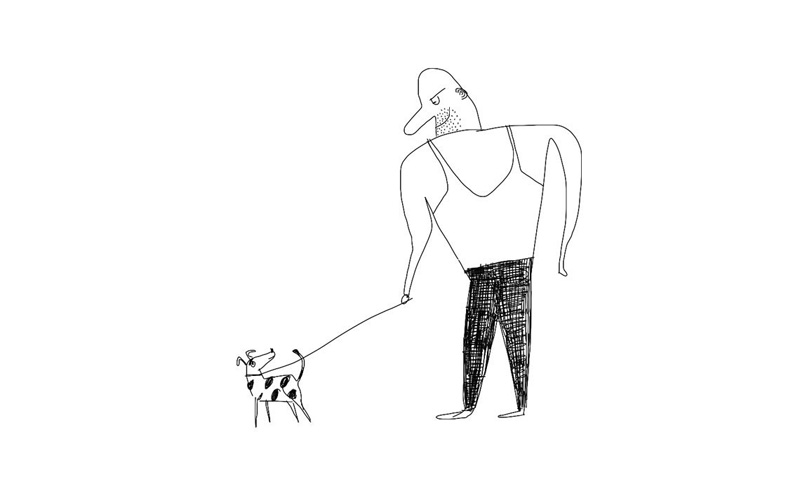The Monthly story: ‘Dogs On The Inside’, March 2015
A story for the March 2015 issue of The Monthly. An excerpt appears below.
The BARK program at Arthur Gorrie Correctional Centre sees prisoners taking care of dogs
A handful of inmates are gathered in the library of the Arthur Gorrie Correctional Centre in Wacol, 20 kilometres south-west of Brisbane. The centre of attention is Kia, a boisterous young Staffordshire bull terrier. As the dark-brown dog does laps of the group, sniffing at thong-shod feet, gratefully receiving rough pats and gulping water from a plastic bowl on the carpet, the four men follow her with their eyes.
“There’s a lot of bravado in here,” says Ricky, a muscular, tattooed man with a shaved head. “When we have a dog, it tones the unit down. To pat a dog, you’ve gotta soften your heart. You can’t be looking tough when you go, ‘Hello, good girl! Why’s your tail like that for?’” His voice rises an octave as he addresses this last part to Kia and forcefully pats her flank. The dog looks up at him, confused.
“It’s good responsibility for us as well,” says the big, bearded Alex. “Cleaning up after poo and wee, picking up rubbish lying around. People throwing stuff in the unit – you’ve gotta stop that when there’s an animal around.” On the outside, Alex bred Shar Peis, a breed known for their wrinkled features. In here, his favourite is Pippy, a fluffy, white Maltese aged three. “She’s lovely all round.” He grins at the anxious animal as she’s led into the room on a leash, warily eyeing off Kia. “She’s perfect.”
Pippy was donated to RSPCA Queensland through the Pets in Crisis program, indicating that she and her owner were fleeing domestic violence. Since early 2013, the RSPCA’s Wacol campus has teamed up with staff and inmates at Arthur Gorrie to run the Bars and Rehabilitation Kanine (BARK) program. During that time, 54 abandoned or surrendered dogs, some with behavioural or medical problems, have been placed in prison units of up to 70 men, who act as foster carers for the animals until they’re adopted in the community or can be returned to their owners. A similar program at the nearby Brisbane Women’s Correctional Centre partners cats with female inmates.
In the prison library, Ricky is the only one not wearing a uniform of green shirt and shorts; a red shirt denotes his role as a mentor for inmates struggling to adapt to their new environment. “There’s a lot of mental illness in here, believe me,” he says. “And most of us guys have trust issues.” He raises his hand. “I, for one. This program does help instil that little bit of trust again. It may be with an animal, but it’s a start.”
To read the full story, visit The Monthly. Above illustration credit: Jeff Fisher.
